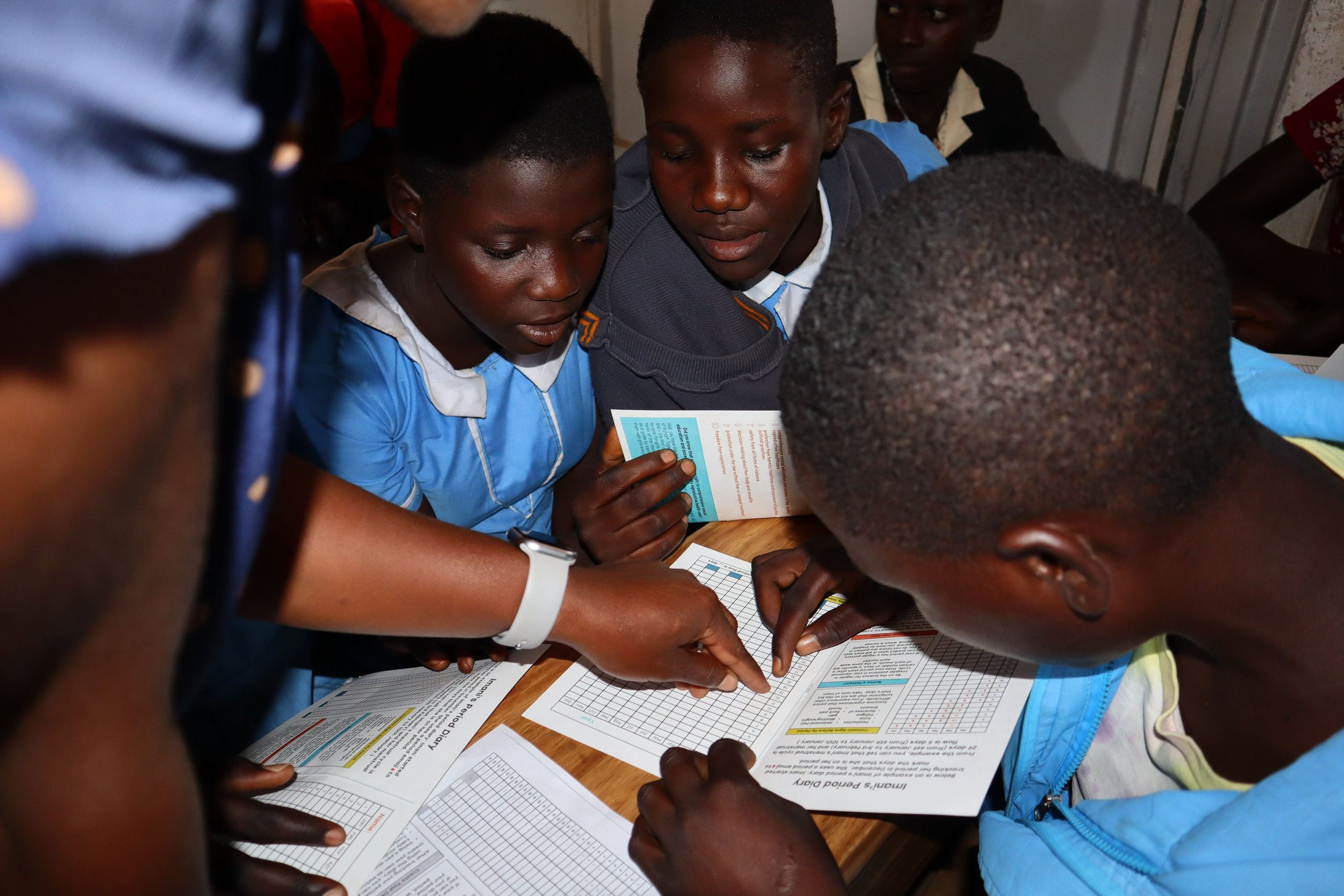By Florence Sidi, Advocacy & Communications Coordinator
Girls at Inspire Youth in Kampala, Uganda, learn to use the She’s the First My Period Diary. (photo provided the organization).
In September 2024, She’s the First launched the My Period Diary Initiative to empower girls through Menstrual Health Education and Management (MHM). With support from Kotex, we partnered with 27 community-based organizations (CBOs) in Africa, South Asia, and Latin America, reaching 2,160 girls.
The initiative provided each girl with a copy of the My Period Diary—a simple but powerful tool to help girls track their cycles, better understand their bodies, and build confidence in managing their periods. Along with the diary, girls also received sanitary pads and participated in safe, interactive sessions that made space for questions, stories, and learning without shame.
Organizations participated in a training by Cynthia Muhonja, the founder and Executive Director of Life Lifter’s Kenya, about why MHM education matters for girls using real-life examples. She further explained the importance of the Ask, Listen, and Act approach: asking girls about their menstrual health needs, challenges, and preferences, listening carefully to their responses to understand their unique experiences by being present and without judgment, and finally acting on the feedback by implementing solutions that address their needs. After the training, organizations received a small stipend to support the printing of the My Period Diary resource, and its distribution along with sanitary towels, to girls.
Girls from Community Empowerment and Support Initiative in Nigeria pose with their menstrual products and Period Diaries (photo provided by the organization).
Organizations thereafter led exciting and informative sessions with girls about MHM, which helped normalize conversations around menstruation. Interactive education, including Q&A sessions, encouraged engagement and clarified any doubts the girls had. Facilitators also created safe spaces where girls could ask questions privately, fostering an open and supportive environment. To ensure focused discussions, girls were split into smaller groups, and facilitators provided individualized attention to help each girl understand how to use the Period Diary to track her cycle. Practical demonstrations on how to use, wash, and store reusable sanitary pads helped the girls learn how to maximize their lifespan up to 3 years!
Ultimately, the initiative boosted girls’ confidence, increased awareness, and fostered stronger community support for menstrual health. It broke down taboos around menstruation and empowered girls to take charge of their menstrual health. Kiara shared, “The girls understood that their periods are cyclical and made up of different stages. We seek to empower the girls, and through this activity, we were able to empower them through bodily autonomy”. And the organizations themselves showed an increased capacity to deliver girl-centered MHM programs and shared that they will include this resource in their programs with more girls.
“The girls understood that their periods are cyclical and made up of different stages. We seek to empower the girls, and through this activity, we were able to empower them through bodily autonomy”
We asked the participants what recommendations they have for other organizations interested in implementing Girl-Centered Menstrual Hygiene programs in their communities. These include:
Conducting teacher training to help normalize discussions about menstruation in classrooms.
Providing drying racks for reusable pads to overcome privacy issues, and address waste disposal challenges.
Focus on debunking myths around menstruation and fertility, as misconceptions can still be a major barrier.
Building long-term partnerships with local organizations and communities will help extend the program’s reach, ensuring that more girls have access to the resources and education they need.



